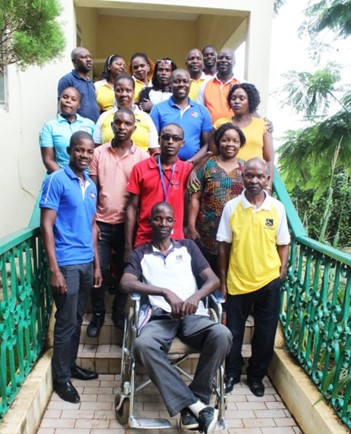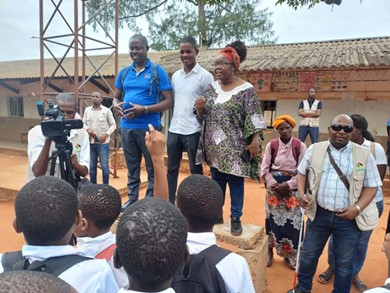WISER EWSA at the frontline of climate action – celebrating World Meteorological Day 2024
This year’s World Meteorological Day has the theme “at the frontline of climate action”. WISER EWSA is embracing this in two ways.
First, the transdisciplinary WISER-EWSA team is co-producing nowcast-based early warning alerts in southern Africa. Second, as a result of the co-production process, the project team is supporting greater inclusion in local structures that are at the frontline of climate action.
Being at the frontline of climate action requires collaborative approaches. Where weather and climate information and early warnings are concerned, there are many examples of “mismatches” between the supply of and demand for information. Sometimes information is produced but it doesn’t get to the people who could use it to reduce risk. In other cases people at the grassroots receive weather information, but they do not understand it and are not able to act upon it.
WISER-EWSA’s approach to overcome this “mismatch” is to co-produce weather information. Co-producing weather information involves different people coming together to generate something useful and useable. WISER EWSA does this within the project team – which comprises a combination of meteorologists and forecasters, researchers, and user engagement specialists. It also does this outside the project team – by ensuring the target users of the early warning alerts are actively involved in the process by defining what information is useful and how it should be presented.
The recent testbeds illustrated how the WISER EWSA team is working with community members who are also at the frontline of climate action. Our co-production process has a particular focus on women and people with disability – who are often marginalised from such processes, and from weather information and early warning alerts, if their particular preferences are not taken into account.

Boane community observers undergo training in weather information with INAM, February 2024
In Mozambique, for example, sustained engagement of the WISER EWSA team with women and people with disability in Boane is bearing fruit. The National Meteorological Institute (INAM) has provided training and awareness raising around how to interpret weather information. People are also now receiving this information on a regular basis to their mobile phones. Through sustained engagement, confidence is built in how to interpret this information.
Increasingly community members in Boane are reporting how they use weather information to inform their daily movements and livelihood activities. For example Maria explained that, when she receives the weather forecast on her mobile phone, she can make decisions about her day. For example if the weather will be fine, she might do her family’s laundry and consider opening her small shop in anticipation of high foot traffic.
As well as informing their own daily lives, Boane residents are embracing the opportunity to be at the frontline of climate action within their communities.
Mozambique has community disaster risk reduction committees but, through the co-production process, it was realised that people with disabilities are largely excluded from these key structures. Local committees in Boane are now welcoming two to three additional members per committee to ensure that people with disabilities are well represented.

The WISER EWSA team participates in World Meteorological Day commemorations with school children in Boane
Participants in the first testbed who acted as community observers take pride in the fact that, as a result of the training they have received, they have a key role to play in ensuring that weather information and early warnings get to everyone in the community. These observers pass on forecasts by word of mouth to neighbours, not all of whom have access to cellphones to receive the information directly themselves.
WISER EWSA will hold another testbed in the 2024-25 rainy season, and preparations are already underway to expand the successes of the first one. In particular this will involve expanding the number of community representatives in cities who are working at the frontline of climate action.


